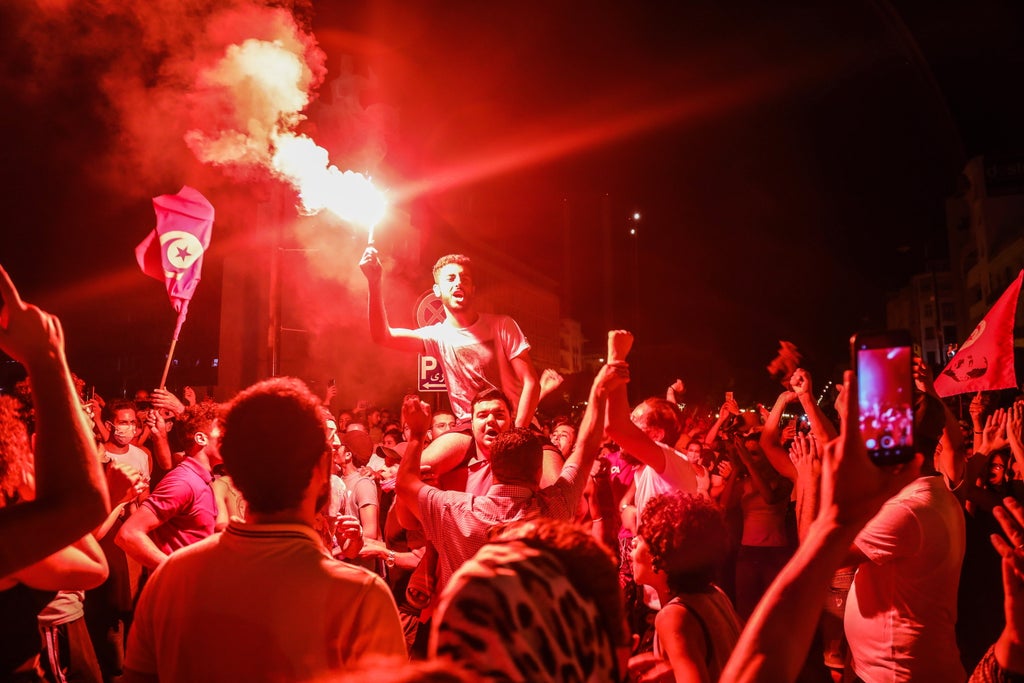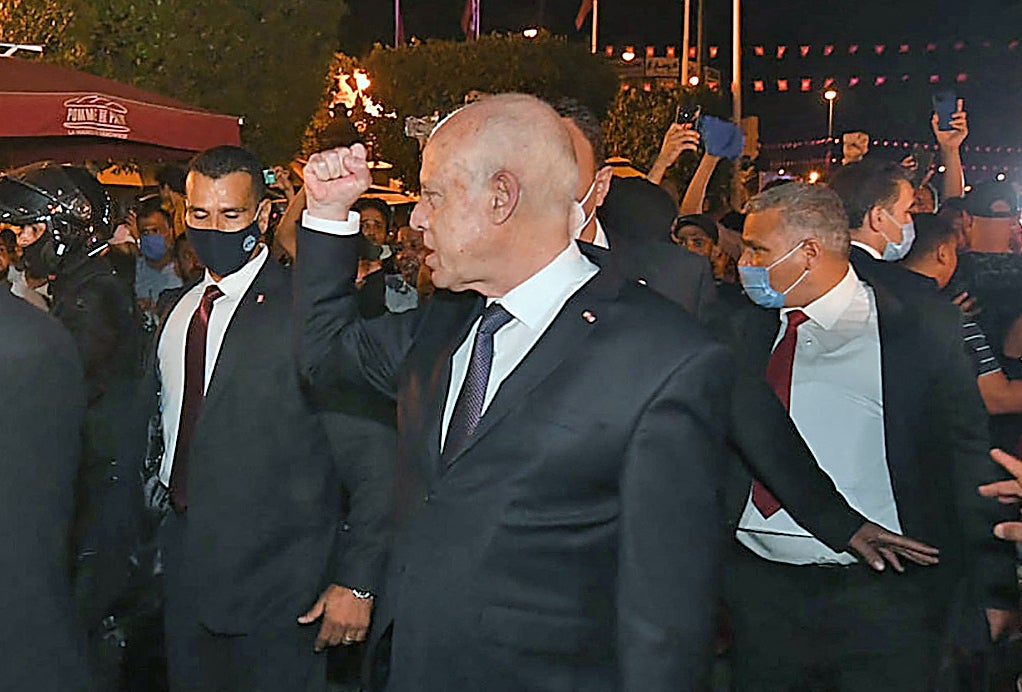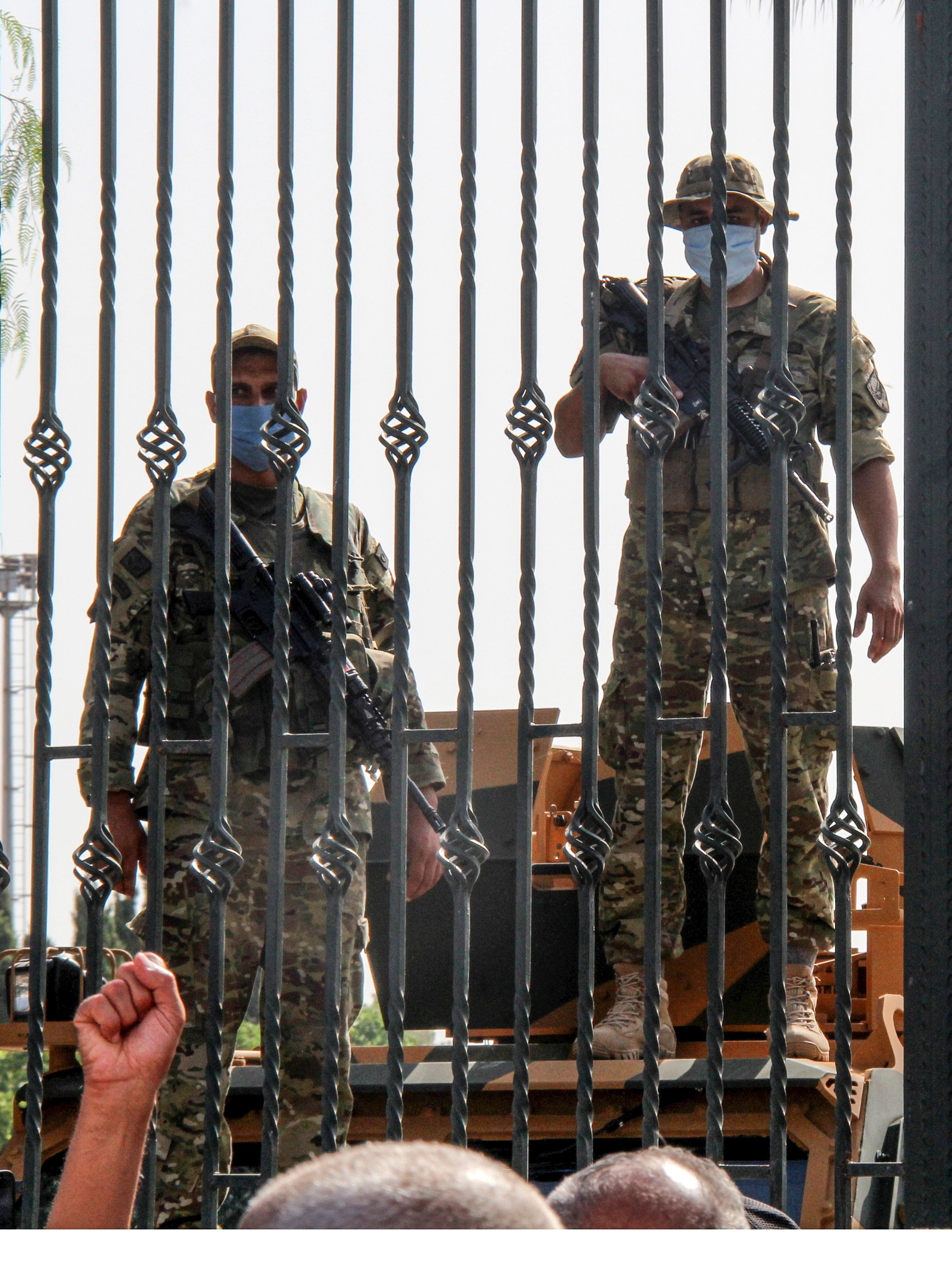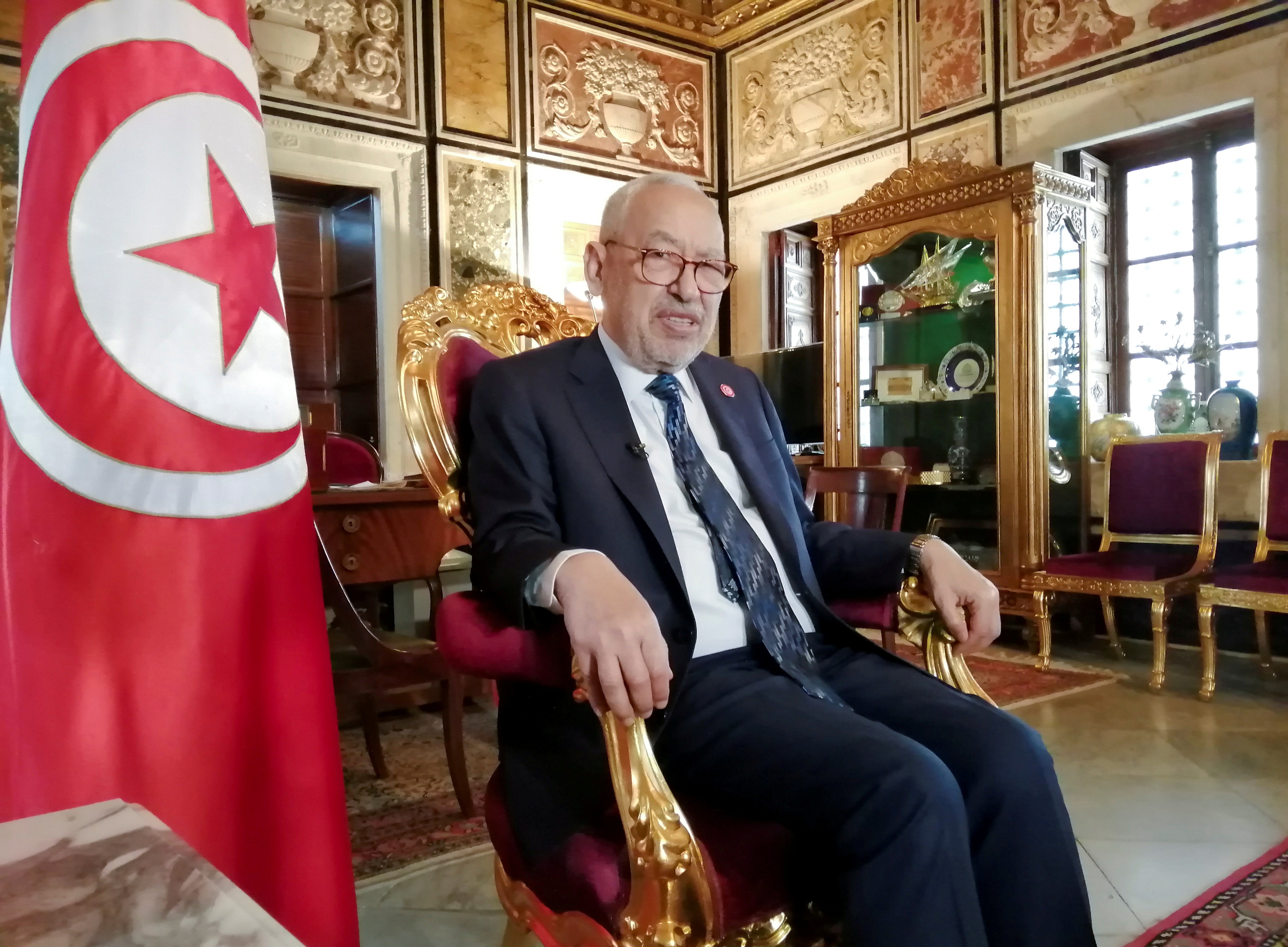
Tunisia has often been heralded as the sole success of the so-called 2011 Arab Spring but on Sunday President Kais Saied plunged the country into its deepest political crisis in a decade by firing the country’s prime minister, defence and justice ministers as well as freezing the parliament.
The dramatic move has been labelled a “coup” by some experts and the president’s staunchest critics.
It followed violent nation-wide rallies by protesters demanding the resignation of the premier and dissolution of the parliament, during a disastrous outbreak of coronavirus that has pushed the healthcare system to the point of collapse and escalated economic woes.
Much of the rage was directed towards Tunisia’s moderate Islamist party Ennahda which commands the largest block in the parliament, and whose offices and local party headquarters have been stormed and even set alight.
But few expected the president, a staunch independent, to take such drastic measures. While there has been growing clamour for change, it has alarmed many who fear the executive, legislative and judicial powers in the country are now in the hands of one man.

The European Union (EU) has urged caution, calling all political actors to “respect the constitution” and avoid violence.
Saied, meanwhile, has defended his actions by saying he took the decisions “until social peace returns to Tunisia and until we save the estate”.
The military, meanwhile, has surrounded the parliament and prevented it from properly operating.
Supporters of Mr Saied have taken to the streets in celebration while Ennahda party leaders have called on their members and other Tunisians to “go to the parliament building to protect the revolution and the will of the people”.
Two of the other main parties in parliament, Heart of Tunisia, and Karama, joined Ennahda in accusing Saied of a coup.
What happened?
President Saied, who was a constitutional law professor before being elected to office in 2019, claimed he took the move after “consultations, under Article 80 of the constitution, with the prime minister and speaker”.
This has been disputed by the parliament speaker, Rached Ghannouchi, who is also head of Islamist movement Ennahda, and said neither he nor the prime minister have been approached about this. Instead, he called the action “a coup against the constitution and the (Arab Spring) revolution”.
Article 80 of the constitution allows a president to take "exceptional measures in the event of imminent danger threatening the institutions of the nation and the independence of the country and hindering the regular functioning of the public powers." But there is bitter division over what that means in practical terms.
The measure should allow the president to assume executive power and freeze parliament for an unspecified period until normal institutional workings can be restored. But experts and Saied’s critics say it can only happen in consultation with a special court which, according to the country’s 2014 constitution, should adjudicate such disputes between arms of the state. Controversially, the body still does not exist. In fact, the delays in its creation have been at the heart of the bitter battle between the president, the prime minister and the parliament speaker over the last year.

Nonetheless Mr Saied pushed ahead and, in a military-style address posted on Facebook, he announced he was suspending all the activities of the parliament for 30 days and lifting immunity for all MPs – an issue he has previously raised as one which allows politicians to evade accountability.
He also said he would relieve the current prime minister Hichem Mechichi and instead he would assume executive authority with the aid of a government headed by a new prime minister.
On Monday Tunisian troops surrounded the legislature and blocked the parliament speaker entering when the 80-year-old former political exile tried to hold a session in defiance of the president.
Why now?
While it is fêted as one of the few democracies in the region, Tunisia has lurched from crisis to crisis since the 2011 uprising which saw the overthrow of long-time President Zine El Abidine Ben Ali.
Over the years it has struggled with surging unemployment, which, as the pandemic set in, has risen to nearly 18 per cent on average and nearly 40 per cent among the youth. The country has also struggled with recurring attacks by the so-called Islamic State (IS), which has devastated the tourism industry.
But these issues began to crescendo in 2019 following elections which, according to Monica Marks, an expert on Tunisian politics at New York University Abu Dhabi produced a “populist clap-back that most of the establishment parties like Ennahda weren’t expecting either”.

Mr Saied was perhaps one of the greatest surprises when he was elected as an independent, and one who is famously hostile to political parties. In 2020 he appointed Hichem Mechichi as prime minister but has been in embroiled in political disputes with him ever since, as the country grappled with an economic crisis and a flailing response to the pandemic.
The street has been boiling after 10 years of democratic transition that has not produced any tangible gains beyond freedom of expression which is not an edible good.
Disagreement over Tunisia’s constitution lies at the heart of this discord – and is a matter which was intended to be settled by a constitutional court. However, seven years after the constitution was approved, the court has yet to be installed after disputes over the appointment of judges.
“The street has been boiling after 10 years of democratic transition that has not produced any tangible gains beyond freedom of expression which is not an edible good,” Marks told The Independent.
“We saw huge protests this January the largest since the revolution largely because of the disastrous Covid response “
Mr Mechichi actually sacked the country’s health minister earlier in the month after the health ministry said the system had “collapsed”.
But anger still mounted, and the dissolution of parliament had been among the demands of thousands of protesters who defied virus restrictions and scorching heat to demonstrate Sunday in the capital, Tunis, and other cities.
What next?
Right now it appears that the president and the parliament are at loggerheads.
Mr Ghannouchi in a signed statement said that despite the fact the legislature had been dissolved the parliament “is in constant session due to the special circumstances that the country is going through”.
Senior members of Ennahda party told The Independent they “are mobilising [their] members” telling them to come to the streets and protest the “coup d’état”.
It is in the interests of the international community to support the only remaining democracy in the region.
Dr Rafik Abdessalem, who is a member of the Ennahda’s executive body and Ghannouchi’s son -in-law, told The Independent that there were no negotiations right now between his party and the president.
Instead, he called on international states to intervene against what he called an “authoritarian” move.
“We call on the international community to take responsibility and reject this process,” he said.
“It is in the interests of the international community to support the only remaining democracy in the region.”
He claimed the president did not like the diversification of power and had exploited the health crisis the country is facing.
Experts, including Ms Marks say the outcome will likely be determined by the reaction from the military establishment and the powerful trade unions.
“The military has been a silent, non-active player in politics and so what they do is key,” she said.
“The fact that Saied announced his decision seated around a table with guys in military uniform is distressing,” she added.
She said over the years the military has been seen as a competent natural player and so there has been a fair amount of external investment in it, making it “bulkier and more popular than ever”.
The Tunisian General Labour Union (UGTT) meanwhile notably released a very cautiously worded statement not supporting the president but not condemning the action either.
Echoing the EU, the UGTT demanded that the exceptional measures taken by the president be accompanied by a “set of constitutional guarantees”. They also urged the military, political parties, and the judiciary to distance themselves from “political quarrels” and to maintain independent.
What are the concerns?
The main fear among experts and observers is the fast descent into violence as opposing factions take to the streets to either celebrate or condemn the president’s actions.
If that happens all eyes will also be on the security forces to see their reaction.
The other concern, for some, is the consolidation of power in the hands of one man, potentially returning Tunisia to some elements from before the revolution.
There are concerns that Saied uses the crisis to push for what he has called his preferred constitutional settlement – a presidential system based on elections but with a smaller role for parliament.
However, Saied could also rapidly name a new prime minister to handle the Covid-19 surge and a looming fiscal crisis. There are hopes he could return to parliament after his 30-day freeze ends and allows normal procedures to resume.







